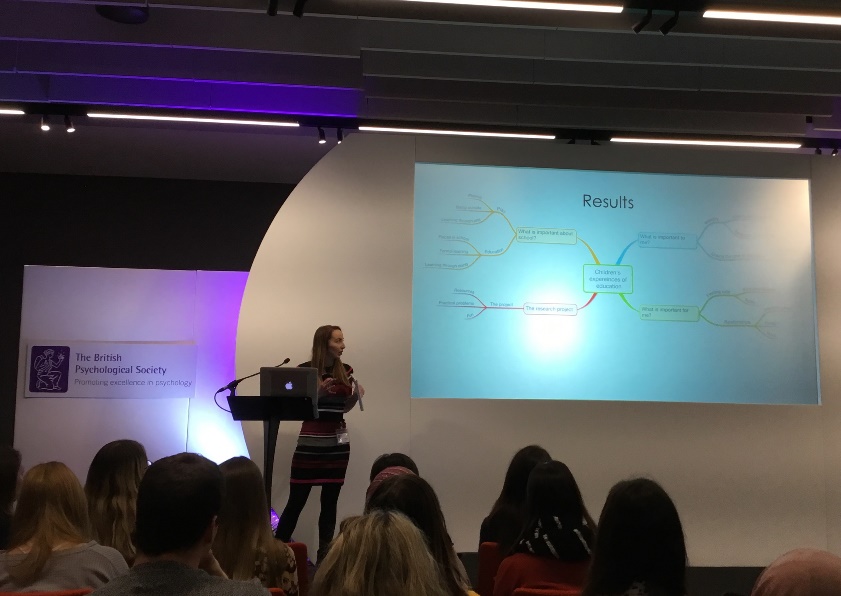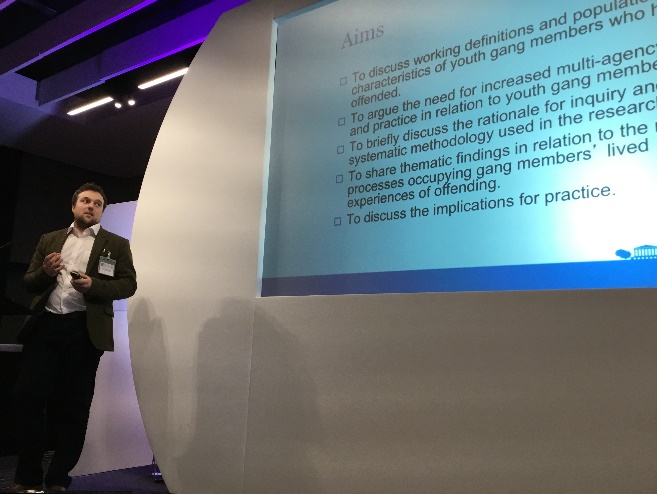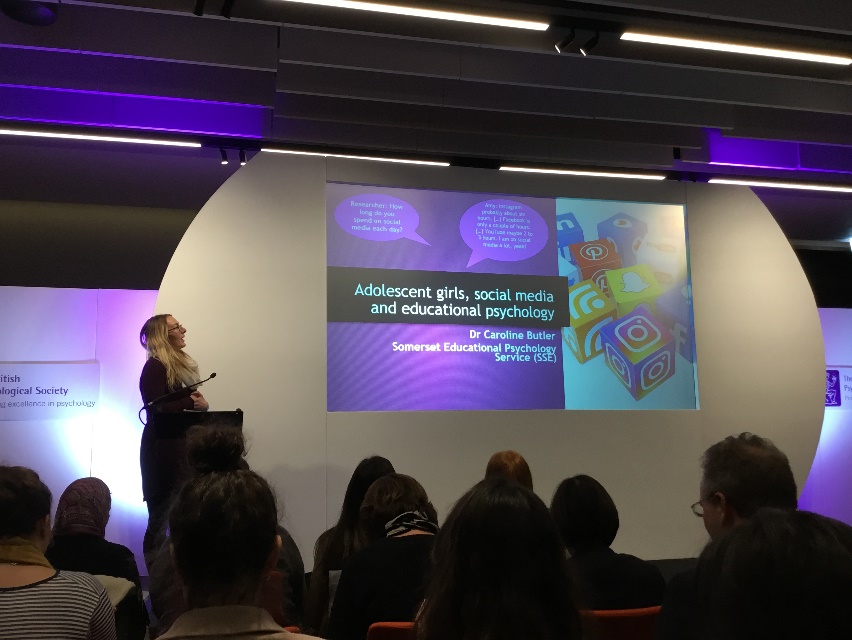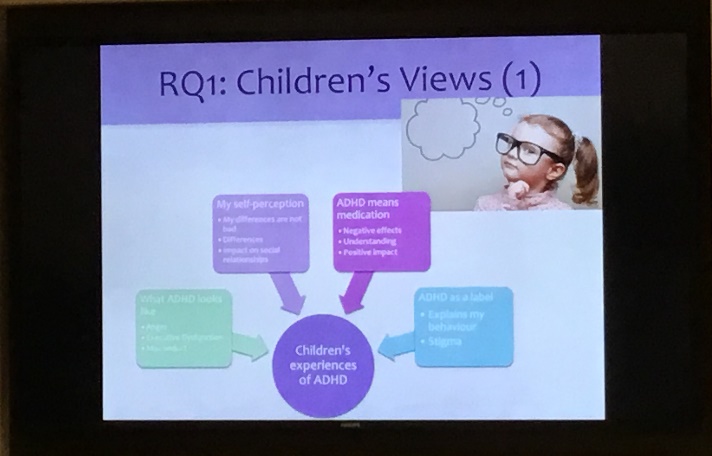By Sophie Quinn
I was fortunate to have the opportunity to attend this year’s Division of Educational and Child Psychology (DECP) trainee educational psychology conference, in the beautiful city of Bath. The conference gives trainees the chance to share the research that they complete as part of their training course. This year’s presentations included examples of how educational psychologists can enable the voice of the child, promote their rights and support children and young people to develop a sense of belonging in the 21st century.
It was inspiring to see so many trainees and ex trainees from the University of Birmingham presenting on the day; including Kate Clissold, Holly Ackland, Tamzin Messeter and Thomas Boden. This did made choosing which talks to attend something of a challenge!

The first presentation that I attended was from Dr Sarah Chestnutt, who trained at the University of Exeter. Sarah’s research explored the educational experiences of children who have lived with domestic abuse. The visual, arts-based methodology used in this study was a nonthreatening and enjoyable way to explore such a sensitive topic with children. It allowed Sarah to discover their view of their world and to make sure that this was at the centre of the support provided for them. Sarah highlighted the importance of talking about domestic violence. She made reference to a thesis from Caroline Gallagher, a former Birmingham trainee, who suggested that as educational psychologists we can “make the invisibility of domestic violence visible” (Caroline’s research can be found here.)

Tom Boden, a Year 3 trainee from the University of Birmingham, gave the second presentation of the day, on his systematic review of the lived experiences of young gang members. Tom highlighted the importance of developing an understanding of gang membership from the view of young people involved with gangs. He challenged existing views about what encourages gang membership, by raising thought provoking issues around gang related offending as a response to living within an oppressive context. Tom suggested that gang membership can sometimes be protective for young people. This research highlighted the role educational psychologists can play in community-based work.

The third talk of the day came from Dr Caroline Butler, who trained at the University of Bristol, talking about ‘Adolescent girls, social media and educational psychology’. Caroline’s research presented the voice of adolescent girls, which is missing in much of the media representation of social media usage. Caroline highlighted the importance of social media in the lives of some adolescent girls and how this can present as a barrier in attempts to change social media usage and behaviour. Caroline’s findings presented social media as a double-edged sword, offering both positive and negative impacts. In her research the girls talked about social media being a platform to talk about mental health, whilst also being the means for many peer conflicts.
 The last presentation of the day was a talk from Nisha Parakh from University College London, who shared findings from her year 1 research exploring ADHD from the view of children, parents and teachers. Nisha’s findings highlighted the disparity between ‘treatment’ guidelines for young people with ADHD and the real experiences of children and families. Medication is often viewed by parents and teachers as the only option, whilst children experience its adverse effects to their emotional well-being. Nisha highlighted the limited understanding children and young people have about their diagnosis and the negative impact this can have on their beliefs about themselves. As educational psychologists, we are well-placed to explore the voice of the child alongside supporting the understanding of parents, teachers and children about the diagnosis and what it means for the individual.
The last presentation of the day was a talk from Nisha Parakh from University College London, who shared findings from her year 1 research exploring ADHD from the view of children, parents and teachers. Nisha’s findings highlighted the disparity between ‘treatment’ guidelines for young people with ADHD and the real experiences of children and families. Medication is often viewed by parents and teachers as the only option, whilst children experience its adverse effects to their emotional well-being. Nisha highlighted the limited understanding children and young people have about their diagnosis and the negative impact this can have on their beliefs about themselves. As educational psychologists, we are well-placed to explore the voice of the child alongside supporting the understanding of parents, teachers and children about the diagnosis and what it means for the individual.
A key thread running through all talks was the need to take a person-centred approach to our work, with examples of practical and empowering ways we can do this.
Thank you to all the speakers who also offered an honest insight into conducting research as part of the doctoral study and inspired us to complete the challenging and exciting journey of research ahead. Hopefully I will have the opportunity return to the conference to present my own research in the future.
Sophie is a Year 2 trainee on the training course at the University of Birmingham.
If you enjoy our blog please follow us and you will receive an email every time we have a new post.

I would love to get involved with anything to help children /young adults, I am wondering how to gain qualifications in any type of mental health issues but ca not seem to find any local courses and wondering if you could help me.
Hi Patricia, I’m afraid that I only know about training in psychology. You might think about a support role in a school or with a voluntary organisation. You can get training in counselling with some charities but the work is unpaid